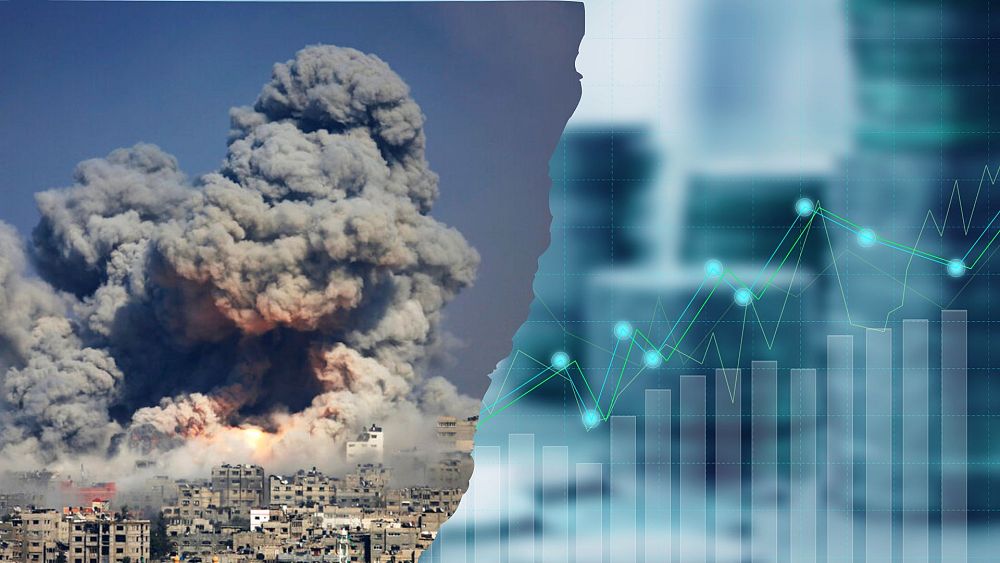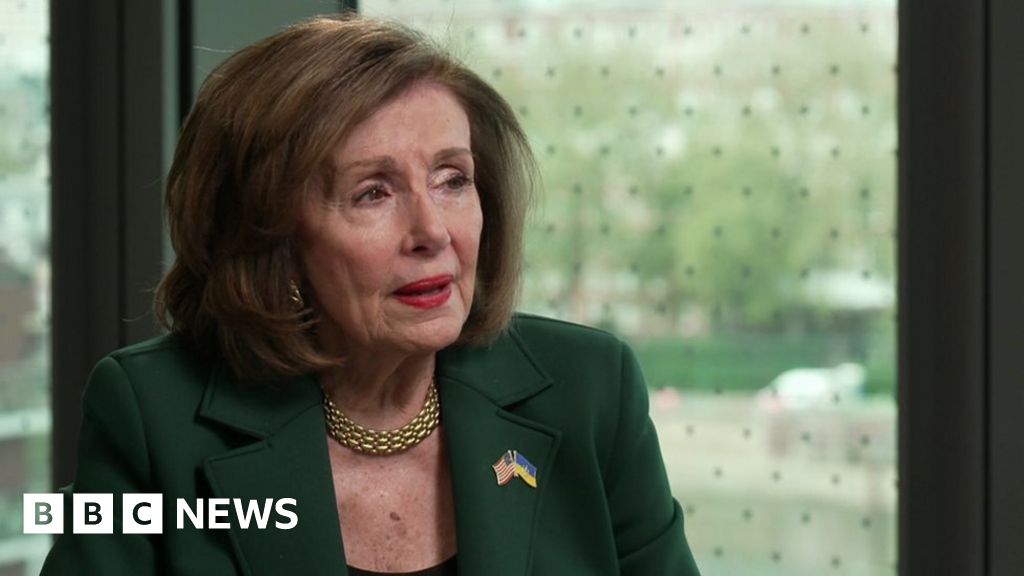Energy and defence-related investments are set to yield in the next 12-18 months, according to analysts.
Weeks after Hamas’s devastating attack on Israel – provoking fierce retaliation by Israel that has prompted fears of a humanitarian disaster in Gaza – the immediate shock that the assault had on the markets appears to be wearing off.
Yet given the huge impact that instability in the Middle East can have on the global economy, a pressing concern for investors arises: which investments would be a safe option amid the potential for escalated conflicts in the region?
BCA Research, a global investment strategy firm, wagers the answer lies in oil and defence-related investment.
The reason, their research shows, is that the war between Israel and Hamas is likely to spill over from Gaza’s borders, prompting a significant oil shock – a forecast that seems ever more possible following reports that the US military struck Iran-backed militias in Syria, in a self-proclaimed act of self-defence.
BCA Research has put the probability of the conflict drawing in Hezbollah and other militant groups in Lebanon and Syria at 45% by mid-October.
Indeed, on Monday morning, the Israeli Defense Forces confirmed that they had struck targets in Syria and Lebanon, in what it called a “response to launches from those areas into Israel”.
Matt Gertken, chief geopolitical strategist at BCA Research, said that there’s even a significant risk that the fighting will extend to bring Iran openly into the fray too, even if it’s unlikely on balance.
“The United States does not want a full-scale confrontation with Iran. They don’t want to interrupt the oil flow,” he said. “The Iranians also share an interest with the US. But it’s still at a one-third probability. It’s still a very high risk for the global economy.”
How oil and defence investments could outperform
With a potential escalation of the war on the cards, there’s a high risk of a major spike in oil prices within the next 12 to 18 months, according to BCA Research.
The war in Gaza won’t be the sole cause, the firm says: Russia, still ensnared in Western sanctions stemming from its continued invasion of Ukraine, is also likely to cut oil production.
“Constraints on the supply chain could push oil prices up,” said Gertken.
But oil isn’t the only market tapped to soar in value – BCA Research has also put its bets on the defence sector.
The chief strategist noted that the US is increasing defence spending to protect its allies, and Europe is also allocating more funds to defence, which are promising signs of increased profits for investors.
Gertken warned however that defence and energy stocks “should be viewed relative to other cyclical equities (stocks whose price is affected by how the economy performs, ed.)”.
As the current global economic outlook, including the IMF’s own, suggests a slowing GDP growth for the upcoming year, the so-called cyclical stocks are facing a weaker performance compared to 2023.
“Within this category, however, energy and defence stocks are likely to outperform,” said Gertken.
What does the market expect?
As news from Israel and Gaza continues to unfold, investors have been edging towards safe haven investments, such as gold and US treasury bonds.
Yet the impact of the war on the global financial markets and oil prices has been moderate so far.
The lack of volatile changes in the oil market is the result of two opposing effects.
Osama Rizvi, energy and economic analyst for Primary Vision Network, said that oil prices were on the verge of decreasing (due to a slowing of the global economy that reduced the demand for oil) just before the Israel Hamas war began.
Many large investors are still taking this outlook into consideration: Major hedge funds and money managers are channelling swathes of investment away from oil.
In the previous week, they slashed half of their long-term investments in oil, cutting down their contracts to purchase oil, from about 398 million barrels to about 197 million.
“This was the fastest rate this happened in the previous decade,” Rizvi said.
At the same time, oil prices were also pushed up by investors who put their bets on an escalating war in the Middle East – which would consequently limit supply and drive up prices further.
As for the next period, Rizvi suspects there will be no major surprises. Assuming the war stays confined to its current borders, he expects no more than a $3-4 rise in Brent oil prices.
However, if Iran enters the fray through a proxy war and seals off access to its 700,000 barrels of oil per year, there’s likely to be a $10 dollar jump, according to the analyst.
The third scenario is the most troubling: A full war involving major powers like the US, where Israel is in direct conflict with Iran.
“If that happens, according to Bloomberg economics, that has the potential to wipe out almost $1 trillion from the global GDP, essentially tipping the world economy into recession, and also the potential of oil prices to hit $150 or beyond that,” Rizvi said.
How this Middle East crisis differs from the others
Looking at previous crises in the Middle East, not everyone is convinced that the situation will truly escalate and put oil shocks on the cards.
However, there is a “major difference” now in geopolitics that makes the current war different from the ones that came before it, according to Gertken.
“I think probably the most underrated element of this conflict is that Iran has achieved nuclear breakout capacity. So it is a different Middle Eastern crisis this time around than in previous ones,” he said.
He explained that the underlying question from a strategic point of view is whether the US and Israel are willing to allow Iran to possess militant proxies or nuclear weapons that could impact the region.
“To put it simply, does Iran get to have nuclear weapons and Hezbollah, or do they only get to have one of those two things?,” Gertken said. “And that’s the reason why I think this is an important and dangerous juncture.”
How the global outlook is driving investors’ hands
Even if a potential conflict with Iran is contained, there’s still the looming possibility that the US economy will face recession in the next 12-18 months, according to BCA Research.
The firm expects headline or energy inflation to be too high to enable the US Federal Reserve (or Fed, the US central bank) to start cutting interest rates.
This, coupled with high energy prices, is squeezing demand and dragging the economy, Gertken explained.
One of the main indicators of whether the US is facing a recession – which Gertken expects to span from 2024 to early 2025 – is its unemployment rate.
“If the US unemployment rate starts rising over the next six months, the first thing it does is it tells investors that the US is going into a recession,” he said. “And we have a very high likelihood of Europe going into recession and we have a weak Chinese economy.”
Gertken also noted that the moment a possible recession takes place in the US can have a huge impact on the country’s election results and in turn global stability. He explained that a recession unfolding before the election would reduce the odds of the Democratic Party winning the re-election.
“What has the most impact for global stability is whether the US political party changes,” Gertken said.
What are the crisis-safe investments?
Rising geopolitical risks usually drive up the price of gold and the dollar – investors tend to almost automatically move their money into these assets because they’re prone to withstanding global crises.
Gold has long been resistant to geopolitical shocks and recently, in spite of the increase in real interest rates, it has remained relatively highly-priced.
Gertken said that one reason for this is that countries like Russia and China, who are positioning themselves for a trade confrontation with the US, are stocking up on gold.
“And that adds a tailwind,” he said.
Dollar investments could see temporary dips as the currency is trading inversely to oil, but fundamentally, they are considered to be a safe haven.
Currencies such as the Japanese yen and Swiss Franc are also solid choices in a crisis, as are US Treasury yields.
The bond market has recently seen a big sell-off but Gertken believes that these investments will start attracting more money flows.
“I think bonds can actually do fairly well because inflation is falling,” he explained. “I do think bonds are still havens and I think in particular developed market bonds, and the US would be included in that category.”
For investors, looking beyond the next 12 months, commodities could also bring good yields. Silver and copper, suggests Rizvi, are potentially good investments, adding that these two generally see increasing demand and rising prices when economies do well.
“Given the condition of the global economy, if one takes a position in copper, on the downward direction, that can give you good yields moving forward,” he said. “Because all of this (the current limited economic growth, ed.) will have to unwind at some point in 2024 or 2025 when the Fed starts to unwind their monetary policy.”

Robert Johnson is a UK-based business writer specializing in finance and entrepreneurship. With an eye for market trends and a keen interest in the corporate world, he offers readers valuable insights into business developments.








